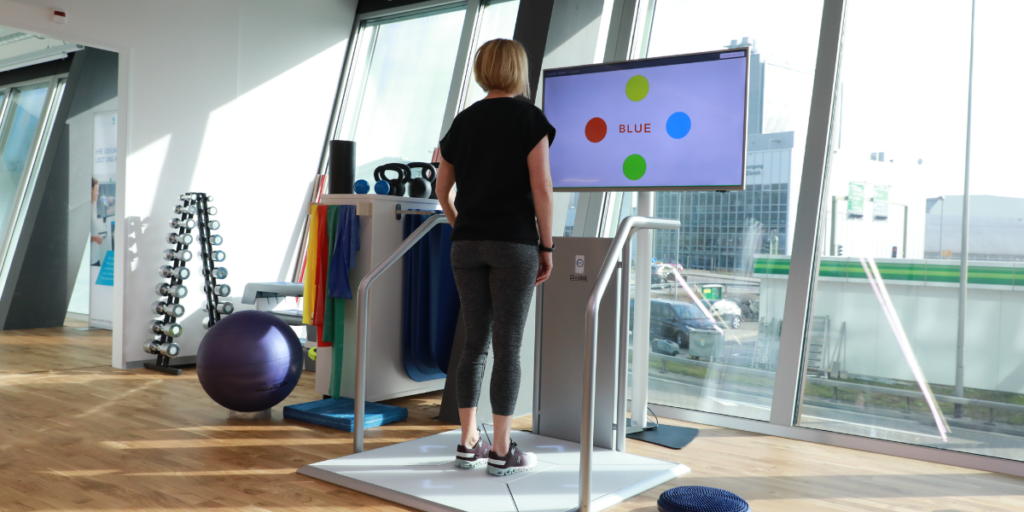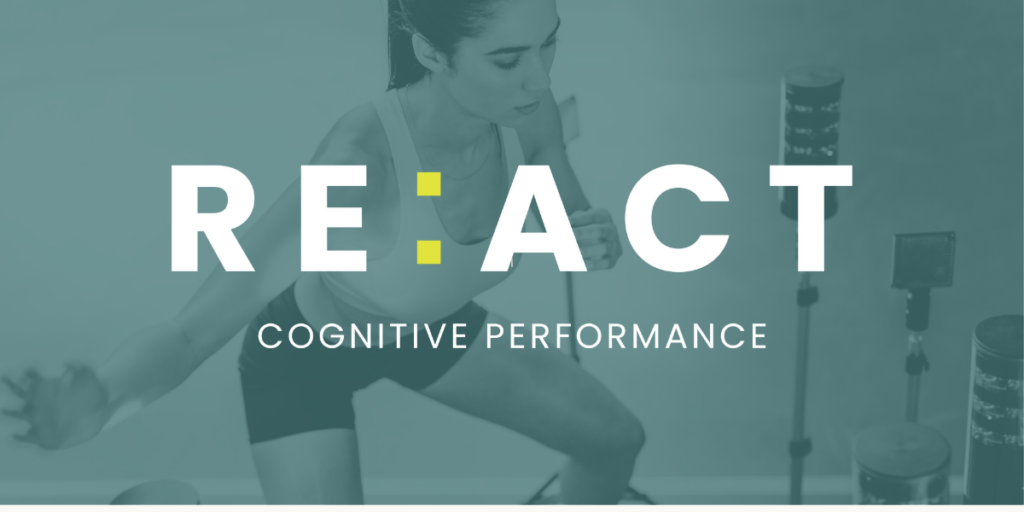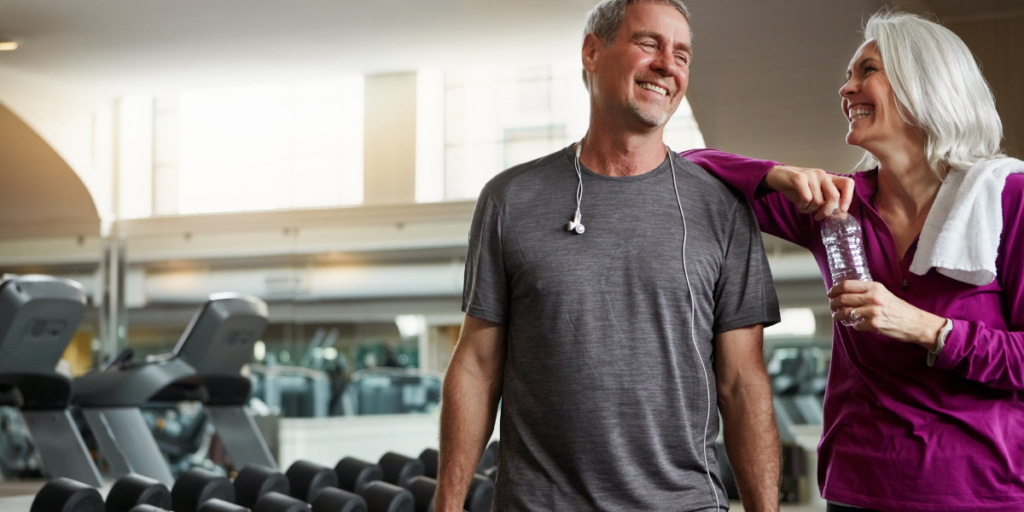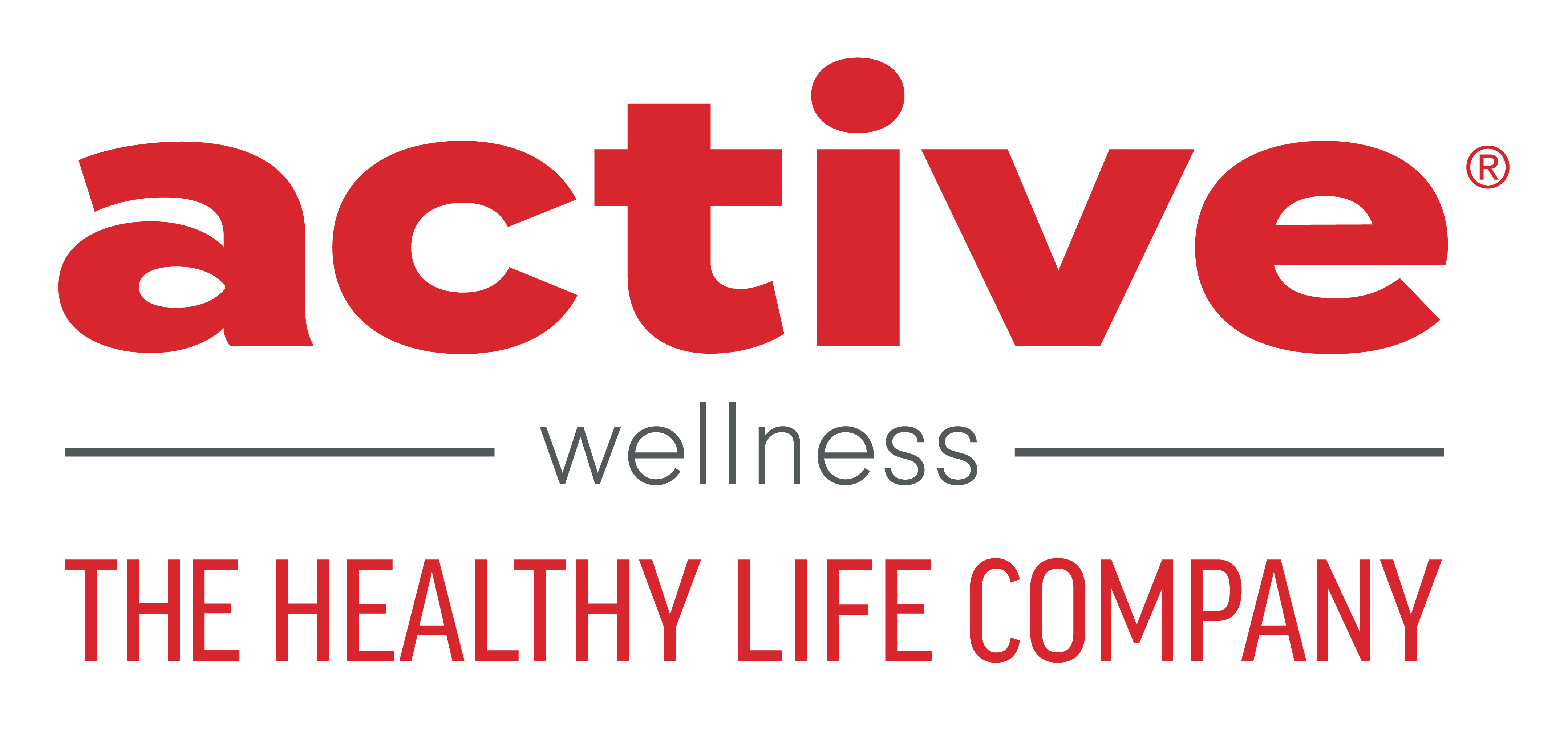Why dual-task training and exergaming are essential, effective components of active aging programs

There are more than 59 million people over 65 in the United States today, and this population is expected to increase to nearly 80 million — or approximately 22% of the U.S. population — by 2040 according to the U.S. Census Bureau. As the aging population grows, non-pharmacological interventions such as dual-task training and exergaming are becoming increasingly relevant for improving cognitive and physical health in older adults, which is crucial for maintaining independence and quality of life.

Active Wellness Center, the first commercially branded wellness center chain developed by Active Wellness, is on the leading edge of this wellness movement with their newly launching Re:Act Brain and Body Training program. Led by Certified Brain Health Trainers who are educated in identifying appropriate cognitive and physical challenges for all ability levels, Re:Act sessions incorporate evidence-based programming; innovative, engaging technology; standardized assessments; evidence-based outcome measures; and complimentary lifestyle coaching to positively influence brain health and cognition. This robust training style can help engage, motivate, challenge, achieve, reward, and elicit results faster than traditional methods.
Integrated Approach
It’s widely known that exercise has a positive impact on both physical and cognitive health throughout the human lifespan. Additionally, computerized cognitive training (CCT) has demonstrated positive impacts on specific cognitive domains. Studies now show that integrating cognitive and physical activities through dual-tasking and exergaming provides additional, synergistic benefits. This type of training often yields greater improvements in both cognitive and physical health, making it more effective overall (Bherer et al., 2021; Soares et al., 2021; Gavelin et al., 2021).
Dual-tasking involves simultaneously engaging in cognitive and motor tasks such as walking and talking on the phone, or driving while following directions. As we age, dual-tasking often becomes increasingly difficult. The good news is that research consistently shows that dual-task training can lead to significant improvements in global cognition, executive function, working memory, gait, and physical activity, particularly for older adults with mild cognitive impairment (MCI) or dementia. (Ye, et al., 2024) These improvements in cognitive and motor functions are critical for fall prevention and overall physical health. (Scarmagnan et al., 2024)
Exergaming, which combines physical exercise with interactive video games, has shown promise in enhancing cognitive functions such as executive function, attentional processing, and visuospatial skills. (Gallou-Guyot et al., 2020) Exergame interventions, especially when combined with traditional physical training, have been shown to significantly improve balance control and reduce falls in healthy older adults (Chen et al., 2021).
Gamification of Fitness
Exergaming equipment by Dividat and SMARTfit has demonstrated significant evidence in improving cognitive function and reducing fall risk in older adults with MCI. When incorporated into a robust cognitive and physical training program such as Re:Act, exergames represent promising interventions for maintaining and enhancing cognitive and physical health in this population.
- Dividat Senso: The Senso exergame system is specifically designed for older adults and has shown promising results in improving both brain and physical health. In one study, participants who trained with the Senso three times a week for eight weeks showed significant improvements in brain activity, cognitive functions like memory and attention, and walking abilities. This training was more effective in enhancing these areas than traditional balance training alone. Another study found that Senso training in geriatric rehabilitation was feasible, safe, and improved factors that reduce fall risk, such as walking speed and reaction time (Altorfer et al., 2021; Schättin et al., 2016).
- SMARTfit: A community-based pilot study conducted by the University of Buffalo’s Center for Successful Aging, in partnership with the William-Emslie Family YMCA, examined the effects of SMARTfit dual-task exercise on older adults with mild cognitive impairment. Over 12 weeks, participants engaged in brain-body exercises that integrated physical movements with cognitive tasks using the SMARTfit system. The study found significant improvements in cognitive functions, including attention and working memory, as well as physical functions such as balance and walking ability. Importantly, the study reported high participant satisfaction and engagement, with all participants completing the program and expressing a desire to continue (Satchidanand et al., 2022).

Cost-Effective Solution
The cost-effectiveness of dual-task training and exergaming is another key advantage. These interventions are generally low-cost and can be implemented in community settings, reducing healthcare costs associated with falls and cognitive decline. In contrast, pharmacological interventions for cognitive impairment, such as cholinesterase inhibitors, offer modest benefits at a higher cost, making non-pharmacological approaches like dual-task training and exergaming more viable for large-scale implementation (Gavelin et al., 2021; Wimo, 2004).
Improving Healthspan is the End-game
Dual-task training and exergaming are effective and cost-efficient strategies for improving cognition and balance in older adults. These interventions, especially when combined with additional lifestyle coaching, provide immediate and long-term health benefits to enhance quality of life and prolong independence of aging adults.


